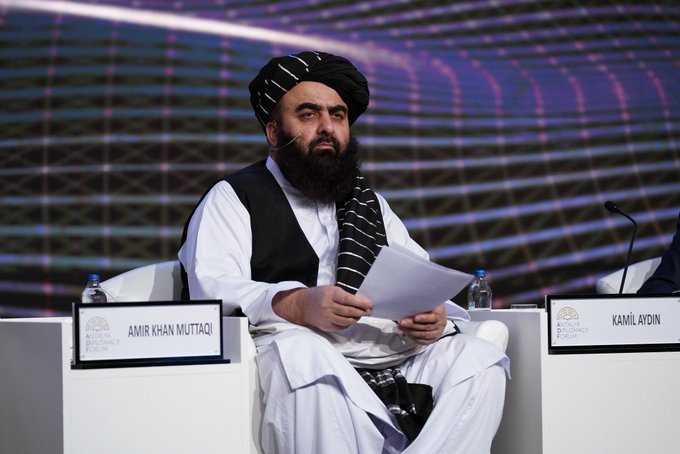Amir Khan Muttaqi, the acting Taliban Foreign Minister, alleged that three countries neighboring Afghanistan are contributing to the expansion of ISIS-Khorasan.
Muttaqi did not specify the countries but claimed one provides “human resources” to ISIS, another offers a “communication route,” and the third serves as a “base” for the group.
Recent reports from the United Nations and the United States indicate a significant increase in ISIS-Khorasan activities since the Taliban’s return to power.
Muttaqi’s allegations come amid a backdrop of increasing ISIS attacks in the region.
He stated, “Unfortunately, three neighboring countries alternately, in one country, prepare human resources for ISIS, which we have seen carrying out incidents in various parts of the world. Another country has become a route through which destructive security elements pass, and another provides a base, funding, and planning on its soil. If these three countries fulfill their responsibilities, there will be no problem in Afghanistan or the region.”
Although Muttaqi did not name any countries, it appears he was referencing a recent attack in Moscow involving Tajikistan citizens. Previously, the Taliban have accused Pakistan of providing safe havens to ISIS, a country that has historically offered sanctuary to the Taliban themselves.
Muttaqi claims that “eight out of every ten attacks in Afghanistan are planned from abroad.”
Despite continuous denial of ISIS’s presence by the Taliban, former Afghan national security chiefs Rahmatullah Nabil and Ahmad Zia Saraj, along with some U.S. senators and retired military officials, have stated that ISIS-Khorasan’s terrorist activities have increased in Afghanistan since the Taliban regained control.
Mito Miller, a spokesperson for the U.S. State Department, said, “Therefore, we have long been concerned about the potential for ISIS-Khorasan to carry out terrorist activities. You saw that we actually warned Russia and Iran about these two recent terrorist attacks, and we have thwarted ISIS plots in Europe. Thus, we have made it clear that we must remain vigilant against the ISIS threat, and we are working with our allies and partners to do so.”
However, why do the Taliban sometimes deny the presence of ISIS while at other times accuse neighboring countries of supporting ISIS in Afghanistan?
Former diplomat Jamal Khurshid said, “They want to convey to their people and foreign partners that ISIS does not exist in Afghanistan, but they themselves are concerned about the presence and activities of the ISIS group in Afghanistan.”
ISIS has launched deadly terrorist attacks from Kandahar, Afghanistan—a center of Taliban power—to Kabul, Iran, and Russia in the early months of 2024, raising serious security concerns in the region.





